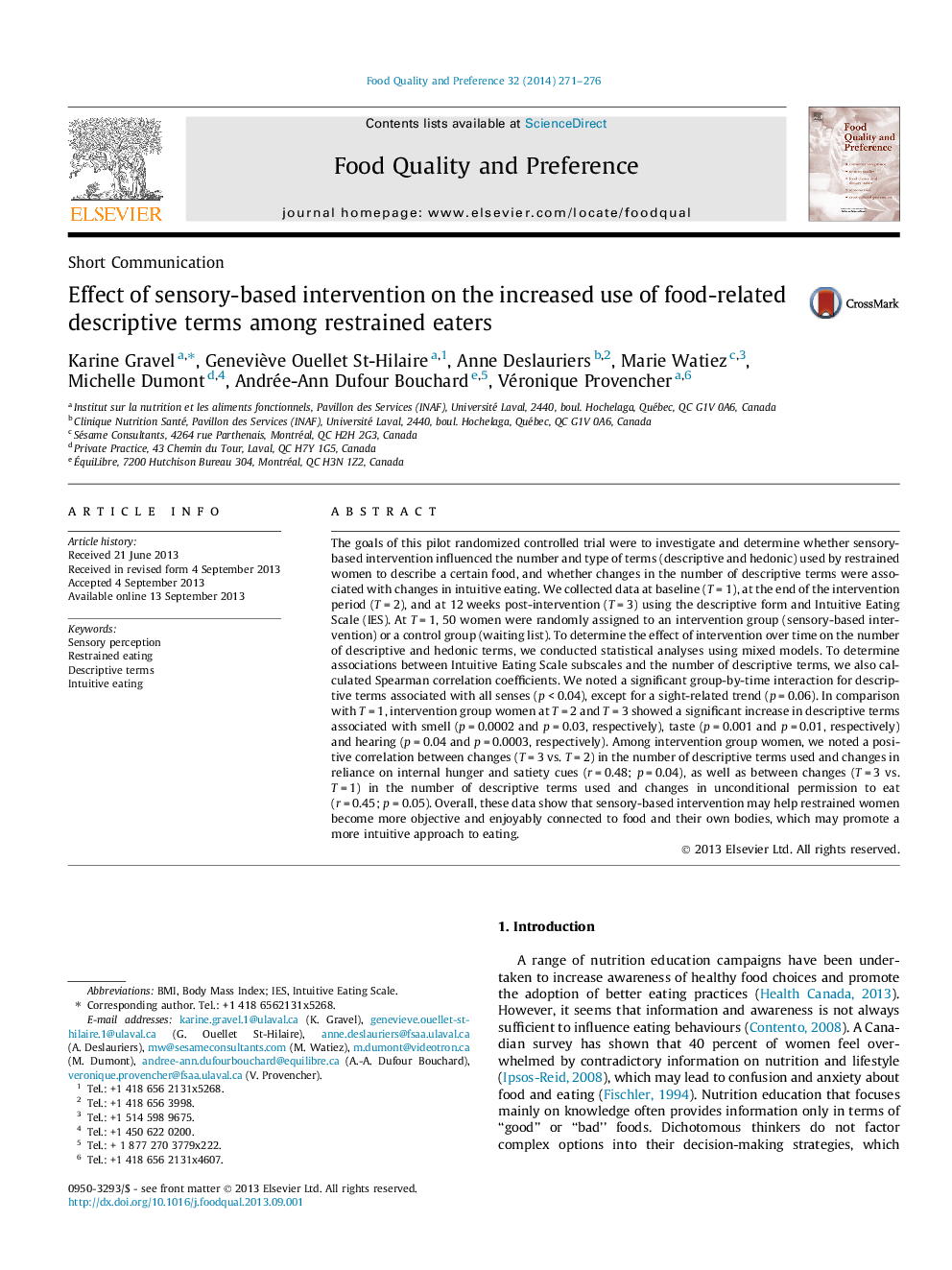| کد مقاله | کد نشریه | سال انتشار | مقاله انگلیسی | نسخه تمام متن |
|---|---|---|---|---|
| 4317273 | 1290586 | 2014 | 6 صفحه PDF | دانلود رایگان |
• Sensory-based intervention increases the use of descriptive terms.
• Descriptive terms and reliance on hunger and satiety cues are positively associated.
• Descriptive terms and unconditional permission to eat are positively associated.
• Sensory-based intervention may help restrained women to be more objective about food.
• Sensory-based intervention may facilitate a more intuitive approach to eating.
The goals of this pilot randomized controlled trial were to investigate and determine whether sensory-based intervention influenced the number and type of terms (descriptive and hedonic) used by restrained women to describe a certain food, and whether changes in the number of descriptive terms were associated with changes in intuitive eating. We collected data at baseline (T = 1), at the end of the intervention period (T = 2), and at 12 weeks post-intervention (T = 3) using the descriptive form and Intuitive Eating Scale (IES). At T = 1, 50 women were randomly assigned to an intervention group (sensory-based intervention) or a control group (waiting list). To determine the effect of intervention over time on the number of descriptive and hedonic terms, we conducted statistical analyses using mixed models. To determine associations between Intuitive Eating Scale subscales and the number of descriptive terms, we also calculated Spearman correlation coefficients. We noted a significant group-by-time interaction for descriptive terms associated with all senses (p < 0.04), except for a sight-related trend (p = 0.06). In comparison with T = 1, intervention group women at T = 2 and T = 3 showed a significant increase in descriptive terms associated with smell (p = 0.0002 and p = 0.03, respectively), taste (p = 0.001 and p = 0.01, respectively) and hearing (p = 0.04 and p = 0.0003, respectively). Among intervention group women, we noted a positive correlation between changes (T = 3 vs. T = 2) in the number of descriptive terms used and changes in reliance on internal hunger and satiety cues (r = 0.48; p = 0.04), as well as between changes (T = 3 vs. T = 1) in the number of descriptive terms used and changes in unconditional permission to eat (r = 0.45; p = 0.05). Overall, these data show that sensory-based intervention may help restrained women become more objective and enjoyably connected to food and their own bodies, which may promote a more intuitive approach to eating.
Journal: Food Quality and Preference - Volume 32, Part C, March 2014, Pages 271–276
